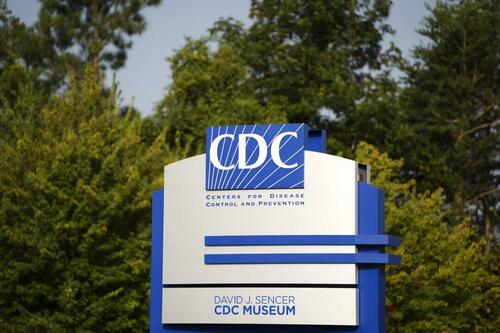
The U.S. Centers for Disease Control and Prevention (CDC) has recommended that adults aged 65 and above get an additional dose of the updated 2023–2024 COVID-19 vaccine following a heated debate by an advisory panel on the issue.
The vaccination was recommended by the CDC’s Advisory Committee on Immunization Practices (ACIP) panel.
“The recommendation acknowledges the increased risk of severe disease from COVID-19 in older adults, along with the currently available data on vaccine effectiveness,” the agency said in a Feb. 28 press release. “Adults 65 years and older are disproportionately impacted by COVID-19, with more than half of COVID-19 hospitalizations during October 2023 to December 2023 occurring in this age group.”
“Data continues to show the importance of vaccination to protect those most at risk for severe outcomes of COVID-19. An additional dose of the updated COVID-19 vaccine may restore protection that has waned since a fall vaccine dose, providing increased protection to adults ages 65 years and older,” it said.
As of Feb. 23, more than 22 percent of U.S. adults have received the updated COVID-19 vaccine, including 41.8 percent of adults over 65.
Dispute Over Wording
During the panel discussion, members debated intensely about the wording of the recommendation. Some wanted a stronger wording, such as “should receive an additional dose,” in the recommendation, according to a report by the Center for Infectious Disease Research & Policy Research and Innovation Office at the University of Minnesota.
However, other members disagreed, pointing out that evidence does not support the need to add “should” in the vaccine recommendation. They also raised concerns that the wording could end up having a chilling or discouraging effect on individuals who haven’t received a shot during the fall.
Several members noted that COVID-19 activity is not following a seasonal pattern such as what is seen with the flu. They projected the number of COVID-19 levels to likely wax and wane over coming months.
The members eventually voted in favor of the stronger recommendation, with the measure passing 11–1. After ACIP’s decision, CDC Director Mandy Cohen endorsed the recommendation.
“Most COVID-19 deaths and hospitalizations last year were among people 65 years and older. An additional vaccine dose can provide added protection that may have decreased over time for those at highest risk,” she said.
The next dose should be taken at least four months after the previous dose. Individuals with compromised immune systems can get their next dose two months after the previous one.
Vaccine Harms
Despite the CDC pushing older people to take additional COVID-19 shots, studies have shown that the jabs may not be effective and could instead cause harm.
A study from Japan published in January looked at the impact of bivalent vaccines among older people. A bivalent vaccine is a shot that triggers an immune response against two different strains of the virus.
Researchers said they “did not find sufficient evidence of effectiveness of bivalent vaccines among previously infected older adults.”
An April 2023 study that looked at over 51,000 employees at the Cleveland Clinic who were given bivalent vaccines found that effectiveness of the shots declined depending on the strain. With the BA.4/5 strain, vaccine effectiveness was only 29 percent, which dropped to 20 percent for BQ strain, and then to just 4 percent for XBB.
A January 2024 study warned that repeated vaccination with mRNA COVID-19 boosters could result in “adverse effects on the immune system.”
“This is particularly relevant in the case of immunocompromised individuals, where the overall cost-to-benefit ratio may lean toward the negative,” the researchers wrote.
“Given the decreased severity of the virus, as acknowledged in various jurisdictions, there are legitimate concerns about the frequent administration of boosters in immunocompromised patients, raising questions about whether this practice may be causing more harm than benefit.”
COVID-19 vaccines are also facing scrutiny for shedding effects. The U.S. Food and Drug Administration defines shedding as the “release of [viral or bacterial gene therapy products] … from the patient through one or all of the following ways: excreta (feces); secreta (urine, saliva, nasopharyngeal fluids, etc.); or through the skin (pustules, sores, wounds).”
Dr. Pierre Kory, founder of Front Line COVID-19 Critical Care Alliance (FLCCC), has said that both mRNA and adenovirus COVID-19 vaccines may cause vaccinated individuals to release spike proteins and other components. For instance, one study found the presence of mRNA in the breast milk of vaccinated females.
During a Feb. 15 congressional hearing, health officials from the FDA and the CDC admitted that COVID-19 vaccinated people can still get infected and transmit the disease.
“There’s data that shows that earlier in the pandemic there was some reduction in transmission. The data on that are very challenging to pin down. It does not absolutely prevent transmission,” Dr. Peter Marks, director of the Center for Biologics Evaluation and Research at the FDA, said at the hearing.
“[The COVID-19 vaccines] do a very good job of preventing death and hospitalization. They may not prevent infection,” he admitted.




